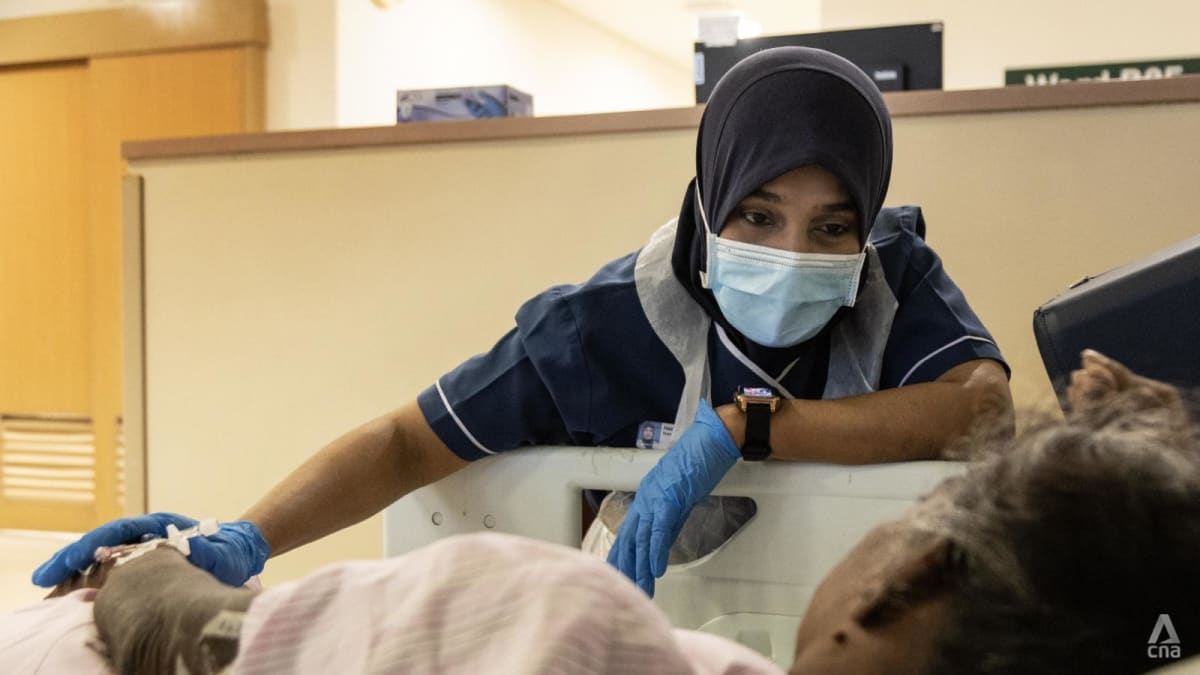Palliative care nurses give a peek into their work journeying with patients at the last mile
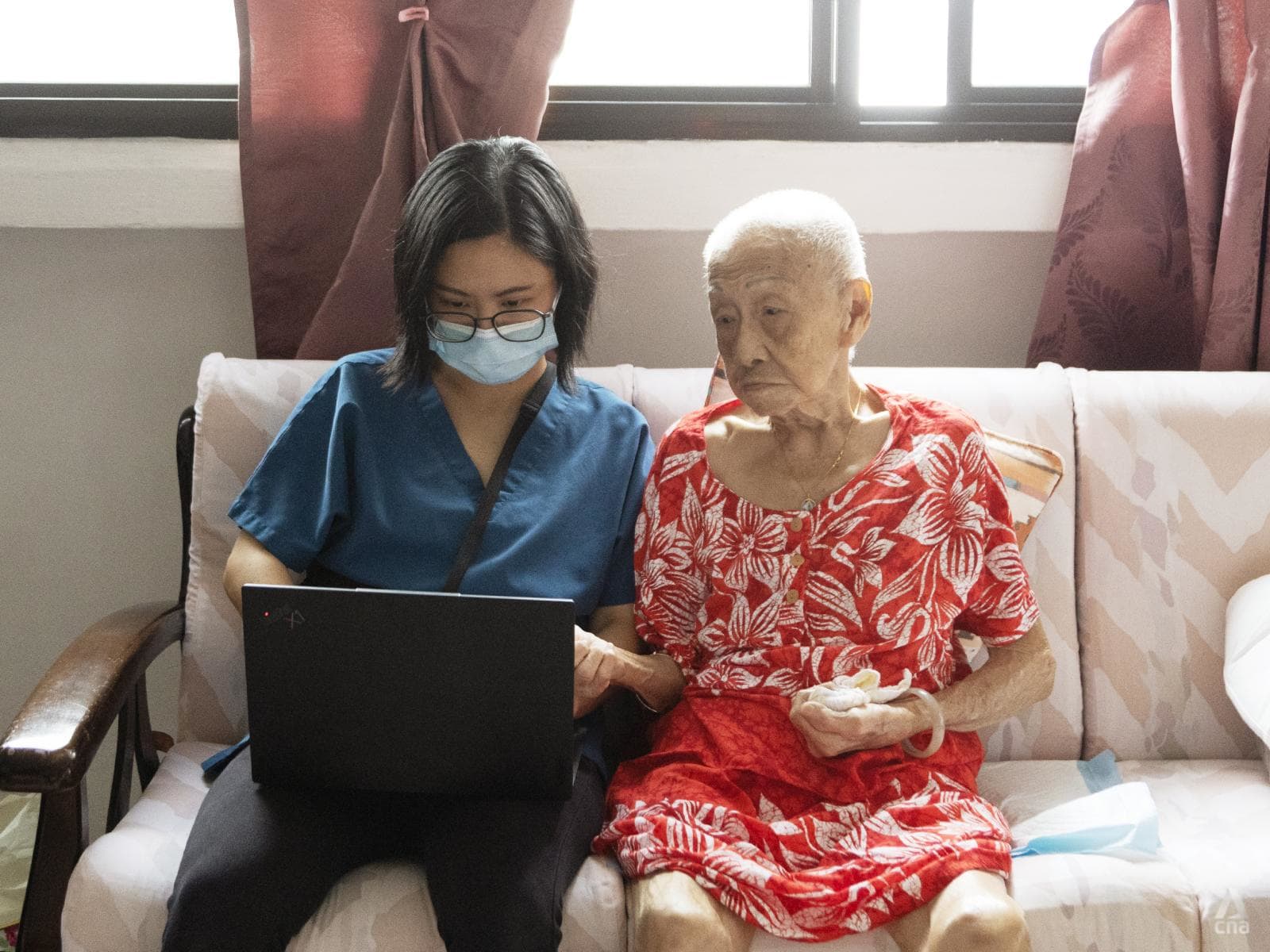
Ms Katherine Lim, a palliative home-care nurse, sitting with Madam Chua Swee Eng. (Photo: CNA/Raj Nadarajan)
The familiar melody of a Teochew opera caught the attention of 95-year-old Chua Swee Eng.
She glanced over at Ms Katherine Lim, 32, her palliative home-care nurse seated next to her, playing the song from her laptop.
The nonagenarian has advanced dementia and typically does not communicate much. Music is one way to make her feel at ease.
A simple nod or smile from Madam Chua would indicate that she is in a “good mood” that day.
In Pixels accompanied three palliative healthcare workers as they went about their task of caring for patients with life-limiting conditions.
They talked about the relationships they have built with their patients and how they support the patients' families as they navigate the difficult and painful journey of end-of-life care.
Palliative care is focused on relieving severe symptoms and it aims to provide as much comfort as possible to patients with terminal illnesses.
'A SENSE OF RELIEF'
Ms Lim has been visiting Mdm Chua one or two times a month for the last seven months.
The nurse from Dover Park Hospice checks on her vitals and the gangrene wound on her right leg.
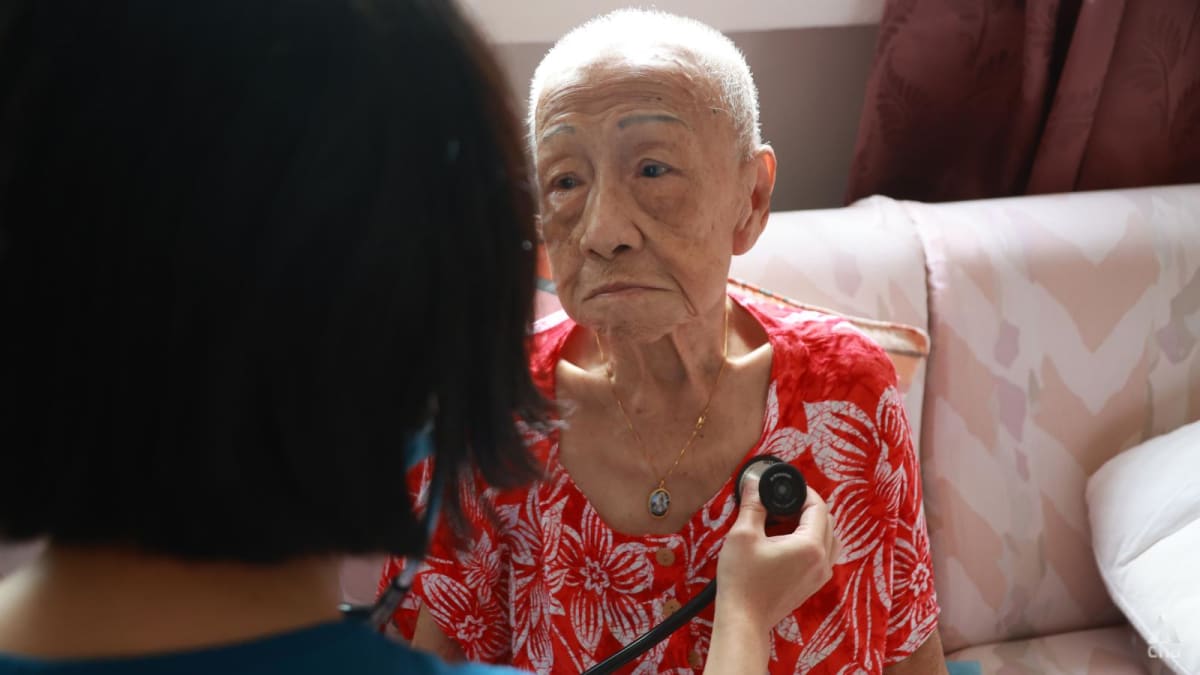
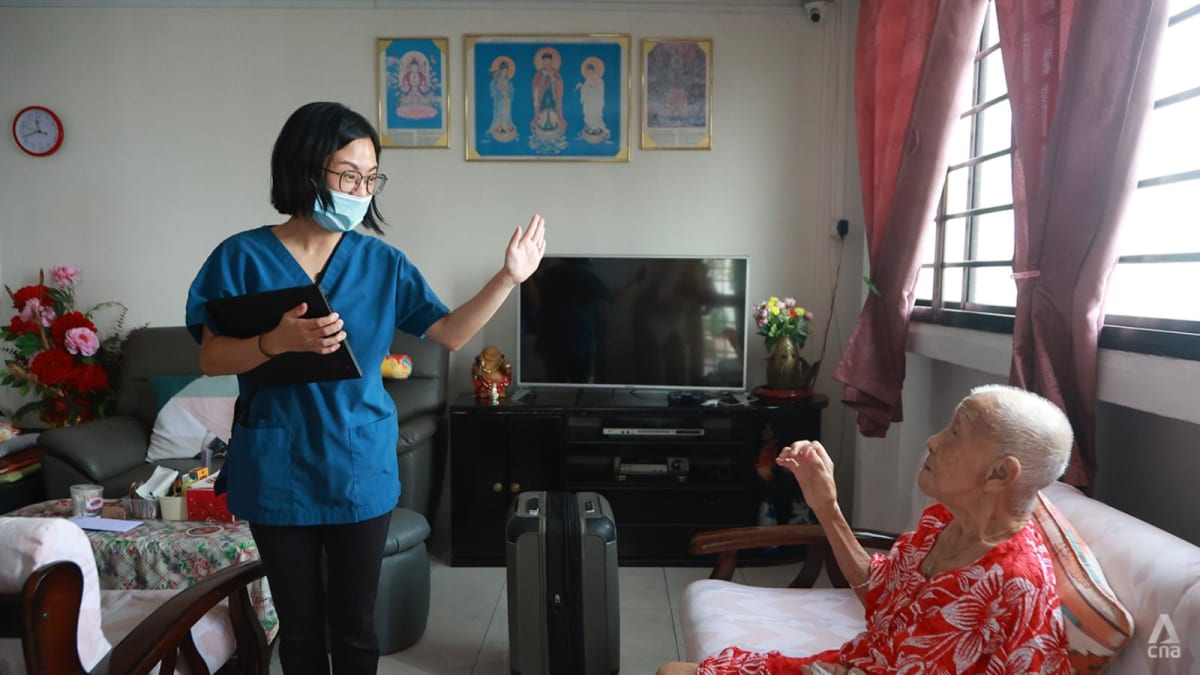
Her visits provide much relief and reassurance to Mdm Chua’s daughter, who is her primary caregiver with assistance from a domestic worker.
The 64-year-old daughter who did not want to be identified said: “I feel a sense of relief when Katherine is here. I can reach out to her if I have questions."
Over the nine years that Ms Lim has been working in palliative care, she has built close bonds with her patients and their families.
She recalled an elderly patient who treated her 'like a granddaughter" and gave her a monetary gift in a red packet when she got married in September 2019.
She did not keep the money due to company policy, but kept the red packet envelope as a memento for the time she had spent with the patient, who died six months after she got married.
Dealing with death is an inevitable part of palliative care.
“The first death I witnessed when I first started, it was a bit scary because I was just on an outing with the same patient the day before," Ms Lim said.
“Eventually I felt that death itself could be a relief, knowing that the patient is free from suffering.”
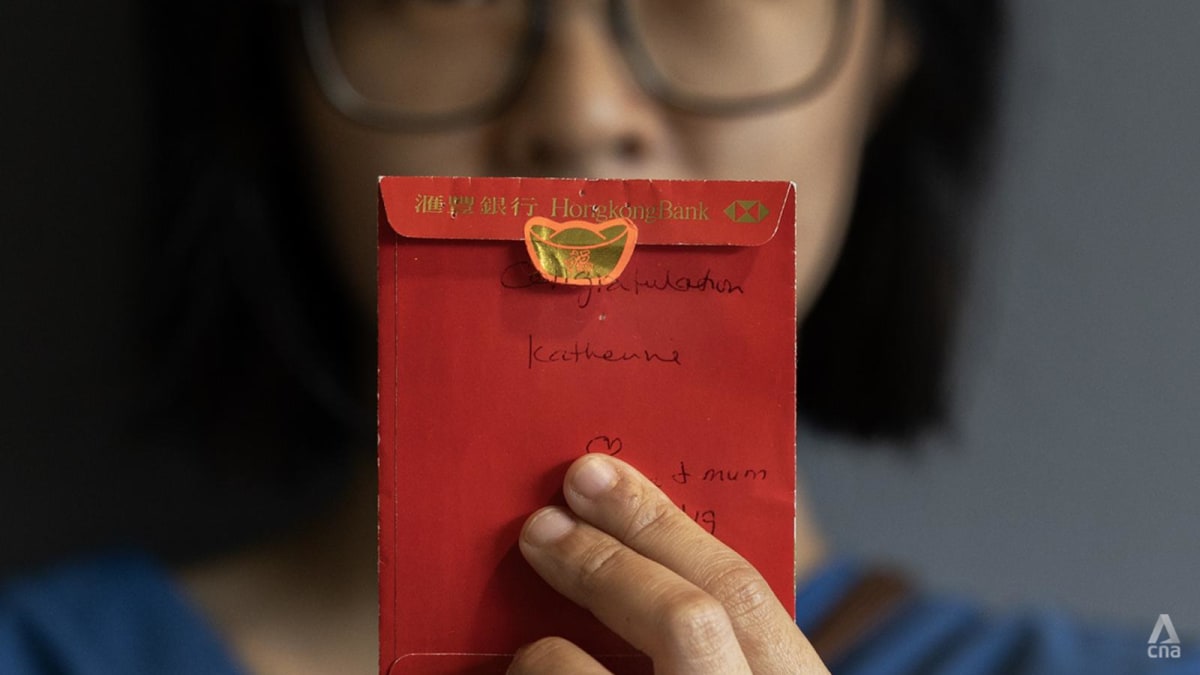
PONDERING THE MEANING OF LIFE
Khoo Teck Puat Hospital's senior staff nurse Daniel Sii described one of his former patients Holman Liang as someone who was “stoic” and “wise”.
He was admitted to Yishun Community Hospital recently in August but died earlier this month.
The 90-year-old had gastric cancer and due to his age, the family had declined further invasive treatments and had opted for palliative care.
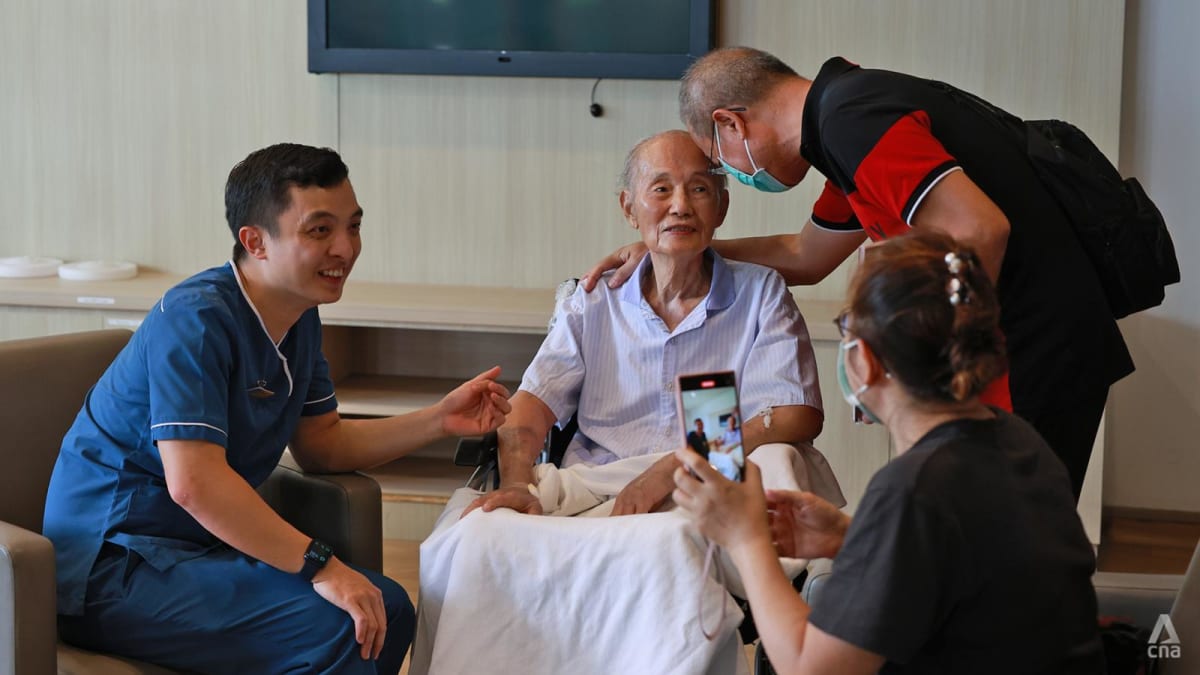
A railway engineer from China who moved to Singapore 30 years ago, the patient was a man of few words.
There were the occasional moments though, when he was chattier than usual, talking to Mr Sii about politics, history, his love for reading biographies or the meaning of life.
The senior staff nurse said: “When a patient shares a lot of things with me, like the meaning of life, there is definitely a bond. No one will simply blurt out things like that."
And if there was one piece of advice he took from the elderly patient, it was to never stop learning.
“I was impressed that someone his age would continue learning ... I admire that.”
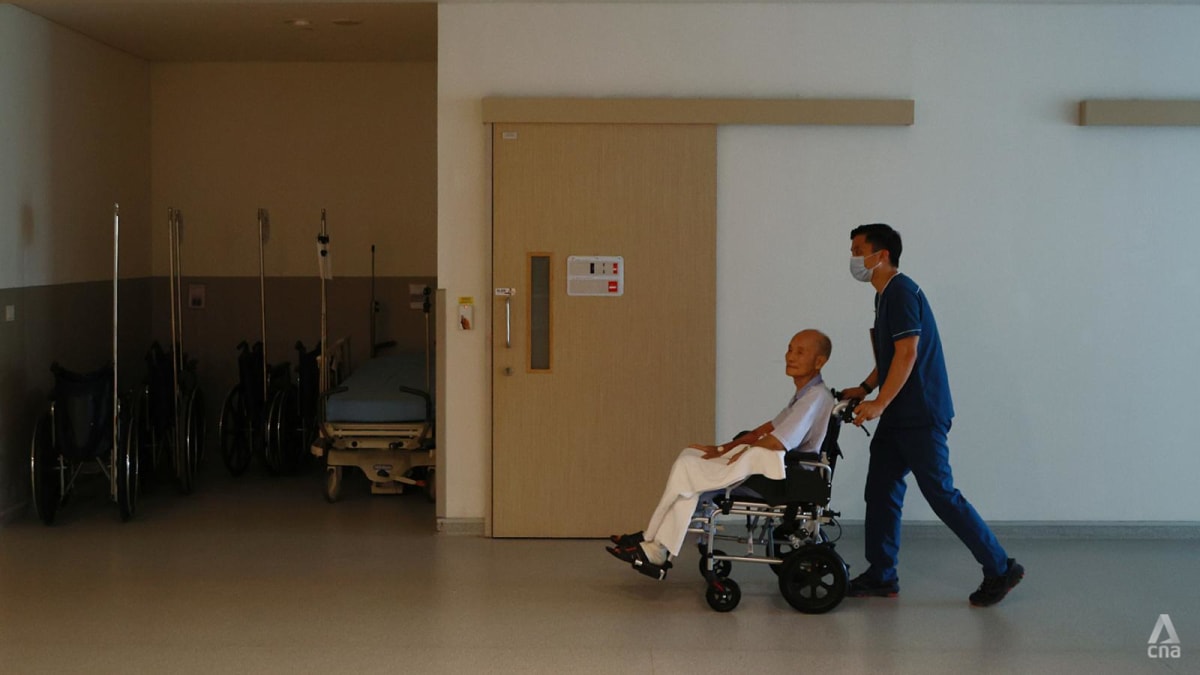
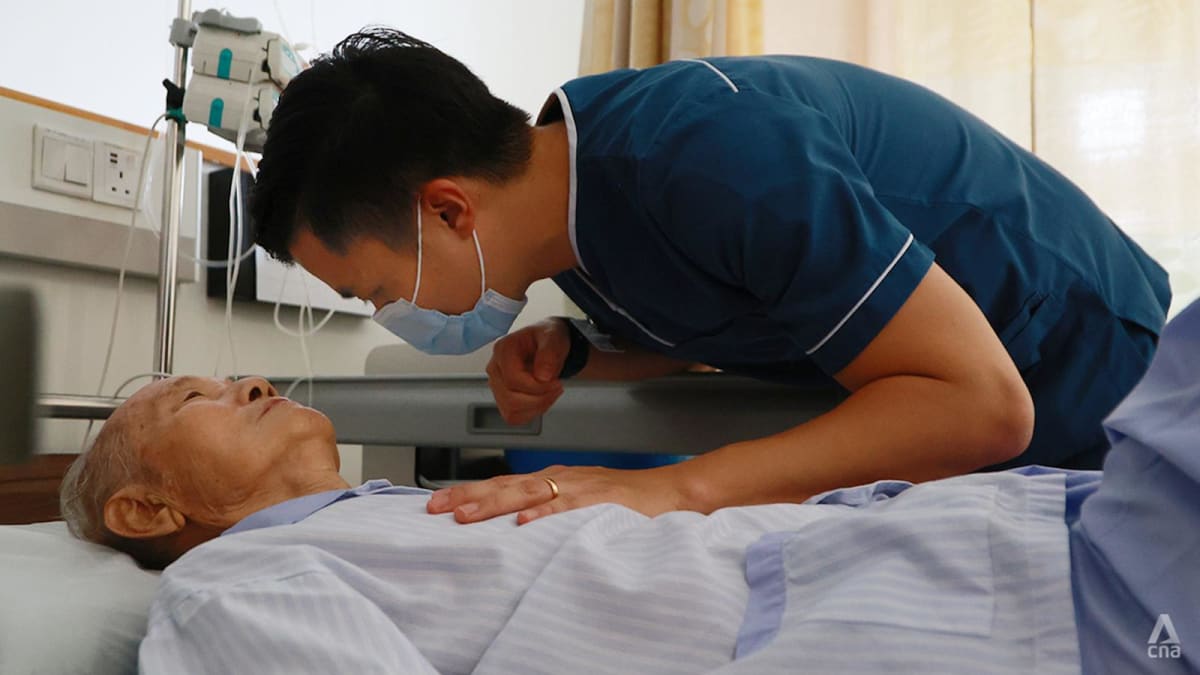
It is not just the physical pains that Mr Sii has to tend to when minding the patients.
“The hardest part of my work is managing the emotions of the patients and their families. It is not uncommon for patients to say, ‘Give me a pill to die’,” Mr Sii said.
“Our role is to journey with them by offering physical and emotional support,” he added.
And sometimes, that means going out of the way to help patients be a part of important life events.
For instance, Mr Sii has helped arranged several marriage solemnisations at the hospital. Patients would otherwise not be able to leave the hospital and attend these events with their families due to their conditions.
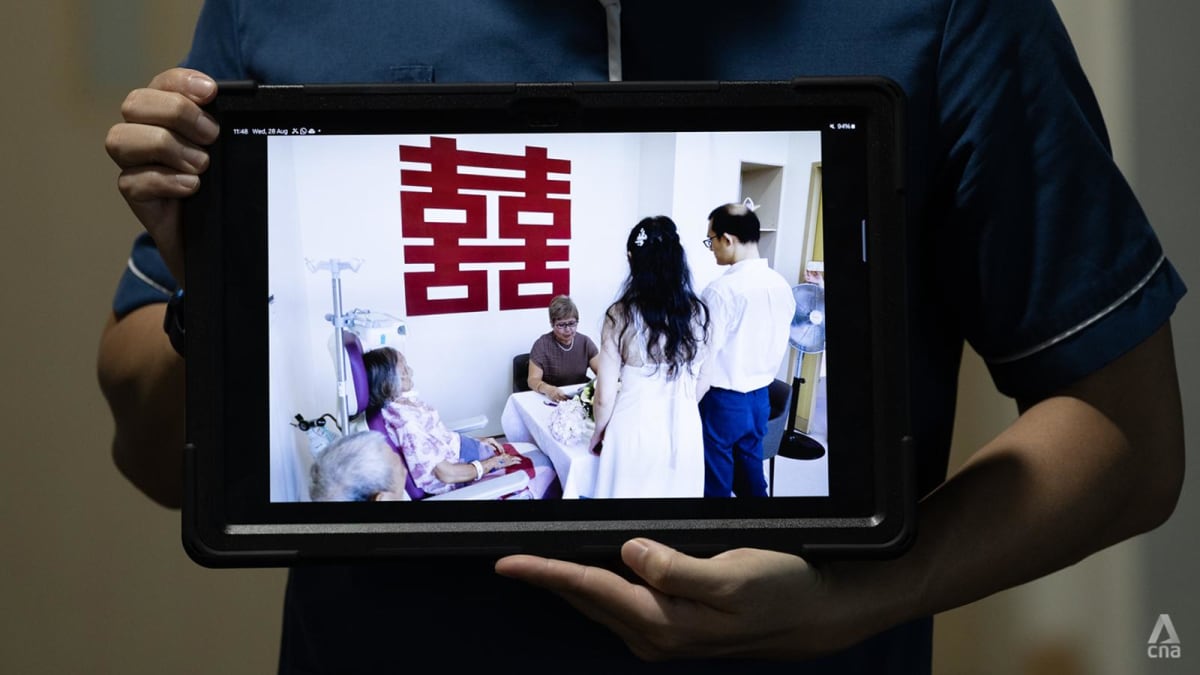
WORDS TO A DYING MOTHER
Ms Hazeena Banu Shaik Alaudeen, 41, an assistant nurse clinician from Khoo Teck Puat Hospital, remembered caring for Mary (not her real name), a mother of three who had an advanced-stage cancer last year.
The patient was in a lot of pain and her husband was concerned about how their youngest child, a seven-year-old boy, would react after seeing his mother in such a frail state.
With the help of a social worker, Ms Hazeena encouraged the soft-spoken boy to pen down what he had said to his mother.
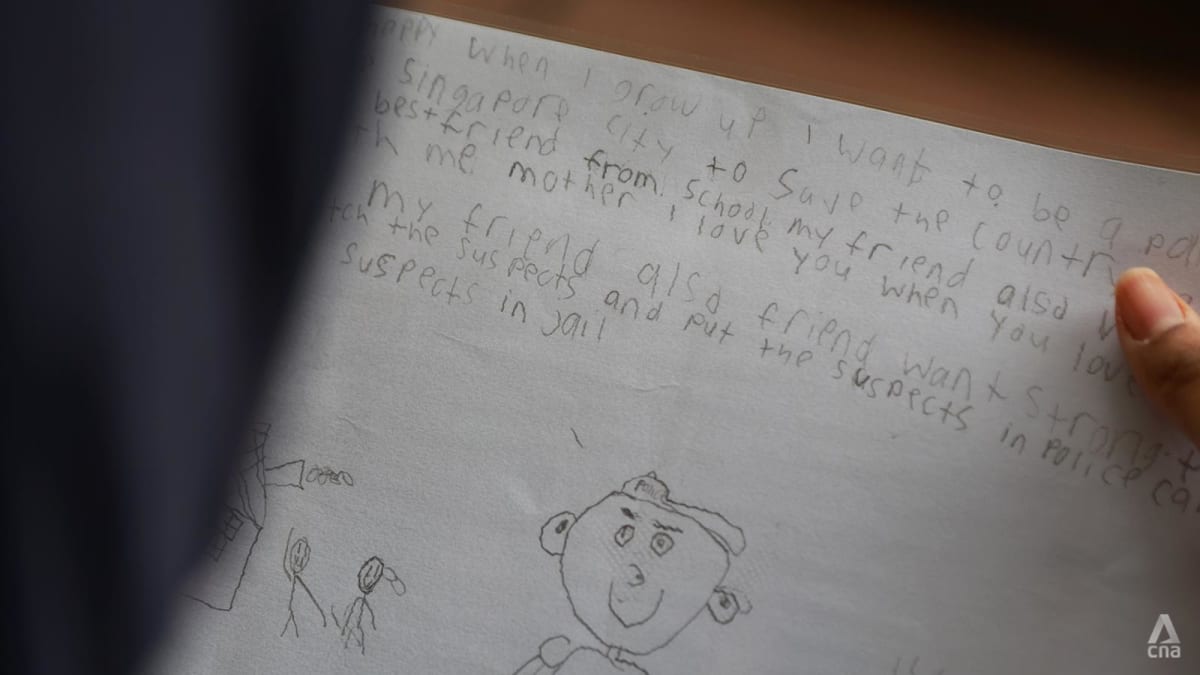
In the letter, the boy expressed how much he loved his mum, how he would be strong and that his aspiration is to be a policeman.
Ms Hazeena, who has three children similar in ages to Mary's children, said: “The ‘I love you’ in the note was important and I felt it was a closure for Mary."
The mother later died.
Having been in palliative care for 14 years, Ms Hazeena said that this is what she has learnt from her patients: “We don't know if we are around the next day, so we live each day and appreciate the people around us.”
